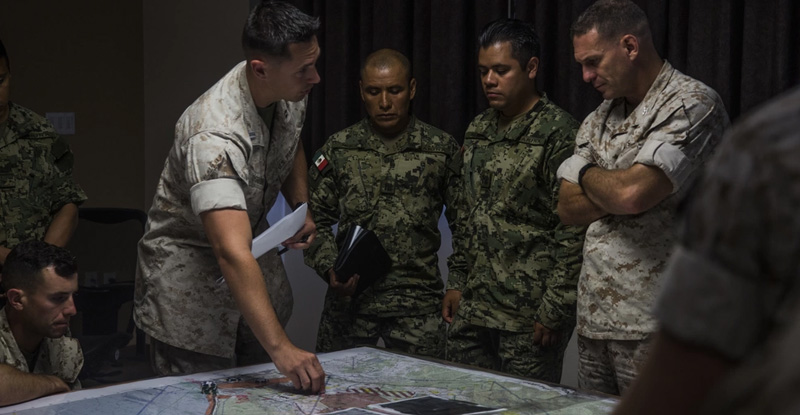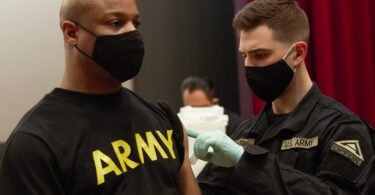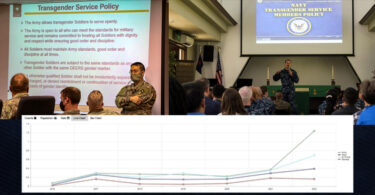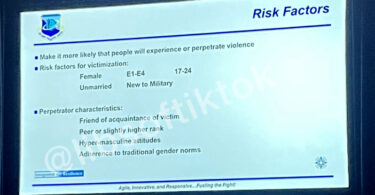By Captain Gene Thomas Gomulka, US Navy ret
It was reported that 2024 will mark a record low in U.S. military recruitment.
Many veterans predicted this development as they discouraged their sons and daughters, along with their grandchildren, from serving in what they perceived to be an intrinsically discriminatory woke military that does not promote people based on one’s merits and achievements.
Many veterans also believe that if Ukraine falls, China will feel empowered and attack Taiwan at a time when the U.S. has the smallest active-duty force since 1940.
Instead of addressing the real reasons behind the ongoing military recruitment and retention problems, political and military leaders are treating symptoms instead of causes by blaming the problem on “a lack of patriotism” or a “failure to meet physical standards” on the part of today’s youth.
Even if the country were to solve the recruiting problem, it still would face the problem of defending itself against potential adversaries. It seems that Americans fail to heed warnings and learn from history.
Brigadier General William “Billy” Mitchell, while on an inspection tour to Asia and Hawaii in 1924, returned to write a 324-page report in which he predicted a future war with Japan, including an attack on Pearl Harbor.
Because his report was critical of Army and Navy leadership for thinking future wars would be fought like the previous war, he was reduced in rank to Colonel in 1925; court-martialed for insubordination; and suspended from active duty for five years without pay. Instead of accepting the suspension, Mitchell resigned in February of 1926, ten years before he died in 1936.
While we all know that U.S. military leaders ignored Mitchell’s prediction about the Japanese attack on Pearl Harbor, we do know that the Japanese learned a valuable lesson from the British who used torpedo bombers to destroy the Italian Fleet anchored in the port of Taranto on November 11, 1940.
Unfortunately, U.S. military leaders did not anticipate that the Japanese might mount a similar attack on their Pacific Fleet based in Hawaii.
The Pacific was not the only place in the world where military leaders failed to recognize how wars are often not fought like previous conflicts.
After World War I which was characterized by trench warfare, the French constructed the Maginot Line while the Germans built the Siegfried Line. Both very massive and costly defensive fortifications proved, for the most part, to be a waste of money.
While the cost of the Maginot Line exceeded $9 billion in today’s dollars, the Siegfried Line which featured more than 18,000 bunkers, tunnels, and tank traps, temporarily slowed the August 1944 Allied invasion of Germany. When asked about the Siegfried Line, General George S. Patton reportedly said, “Fixed fortifications are monuments to man’s stupidity.”
If the German “Blitzkrieg” in World War II proved to be a very different form of warfare than trench warfare that was carried out twenty years earlier, one can expect future terrorist attacks to be different than those of 9/11.
How many terrorists have entered the U.S. as a result of President Joe Biden’s open borders policy?
According to U.S. Customs and Border Protection officials, an increasing number of migrants arrested at the southern border over the past year were found to be on the United States terrorist watch list. From October 2022 to September 2023, officials at the southern border arrested 169 people whose names matched those on the watch list, compared with 98 during the previous fiscal year and 15 in 2021.
Who would be to blame if the infiltration of terrorists that the open borders policy has fostered were to undertake bombings at events that attract large numbers of Americans either on a specific holiday or on random dates and in random places?
If the U.S. were to go to war with China over Taiwan, you can bet that the Chinese would come up with a plan not based on previous conflicts.
Military planners and security officials must deal with global, regional, and domestic threats like a good chess player who is called to think one, two, or three steps ahead of his opponent.
Instead of trying to create a more diverse military by recruiting and promoting people based on woke racial and sexual preference quotas, military personnel should be evaluated and promoted based on their performance.
Instead of patting down and harassing retired military personnel and little old ladies in search of bombs and weapons, the U.S. Department of Homeland Security should spend its time, money, and efforts on implementing border security and ensuring that those who entered the U.S. illegally are identified, tracked, and screened before it’s too late and people die.
–
Gene Thomas Gomulka is a retired (O6) Navy Captain who co-authored the Marine Corps and Navy Core Values of “Honor, Courage, and Commitment,” and who was awarded the Alfred Thayer Mahan Award by the Secretary of the Navy for “literary achievement and inspirational leadership.”
Department of the Navy Core Values Charter (US Navy)
As in our past, we are dedicated to the Core Values of Honor, Courage, and Commitment to build the foundation of trust and leadership upon which our strength is based and victory is achieved.
These principles on which the U.S. Navy and the U.S. Marine Corps were founded continue to guide us today. Every member of the Naval Service – active, reserve, and civilian, must understand and live by our Core Values.
For more than two hundred years, members of the Naval Service have stood ready to protect our nation and our freedom. We are ready today to carry out any mission, deter conflict around the globe, and if called upon to fight, be victorious.
We will be faithful to our Core Values of Honor, Courage, and Commitment as our abiding duty and privilege.
“HONOR”
I am accountable for my professional and personal behavior. I will be mindful of the privilege I have to serve my fellow Americans. I will:
-
- Abide by an uncompromising code of integrity, taking full responsibility for my actions and keeping my word.
- Conduct myself in the highest ethical manner in relationships with seniors, peers and subordinates.
- Be honest and truthful in my dealings within and outside the Department of the Navy.
- Make honest recommendations to my seniors and peers and seek honest recommendations from junior personnel.
- Encourage new ideas and deliver bad news forthrightly.
- Fulfill my legal and ethical responsibilities in my public and personal life.
“COURAGE”
Courage is the value that gives me the moral and mental strength to do what is right, with confidence and resolution, even in the face of temptation or adversity. I will:
-
- Have the courage to meet the demands of my profession.
- Make decisions and act in the best interest of the Department of the Navy and the nation, without regard to personal consequences.
- Overcome all challenges while adhering to the highest standards of personal conduct and decency.
- Be loyal to my nation by ensuring the resources entrusted to me are used in an honest, careful and efficient way.
“COMMITMENT”
The day-to-day duty of every man and woman in the Department of the Navy is to join together as a team to improve the quality of our work, our people and ourselves. I will:
-
- Foster respect up and down the chain of command.








Leave a Comment